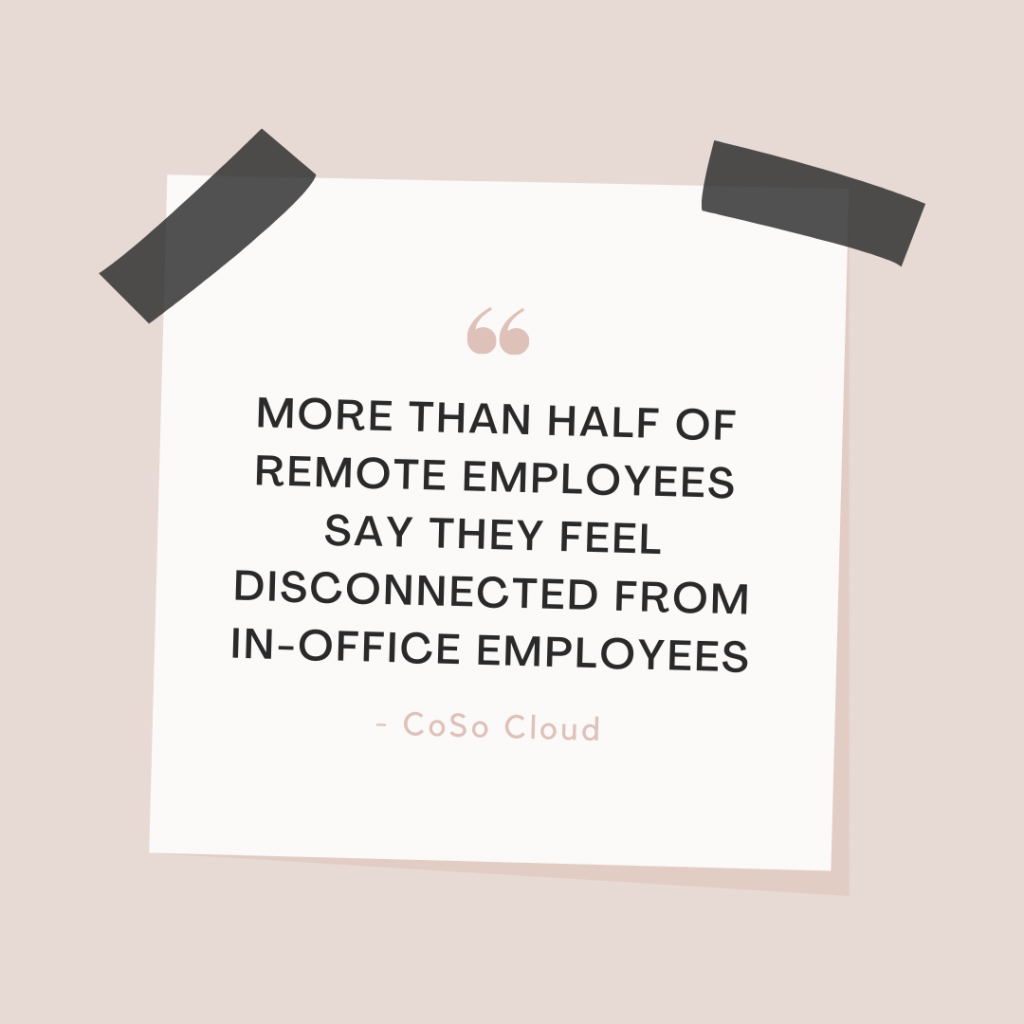
How to Keep Your Remote Team Motivated
Is your remote team motivated to start another day of video chats?
You might believe that remote workers must be entirely self-motivated and that team culture becomes less important when people stop coming to the office.
You’d be wrong.
Instead, both highly motivational leaders and a strong team culture become imperative when teams go exclusively online. It goes without saying that it is much harder to stay motivated and connected when you are not physically present. But, lack of physical closeness also can impede innovation.
Even if your employees are highly paid and have all the freedom in the world, they still need to feel motivated if you want them to go beyond just doing tactical work and collaborate to solve bigger, more higher-thinking oriented problems.
The only options are to watch your team’s productivity and overall happiness decline or step up your team’s culture to keep your remote team motivated.

The Intrinsic Way to Keep Your Remote Team Motivated
Let’s get real here: all the money, perks, and flexibility in the world won’t motivate you if you don’t like the work you’re doing or the people you work with. While people love the idea of working remotely (If they could, 99% of people would choose to work remotely, at least part-time, for the rest of their careers from Buffer), more than half of remote employees say they feel disconnected from in-office employees (CoSo Cloud).
So how do you keep your remote team motivated and connected? When trying to motivate your remote team, it’s best to go beyond what’s in an employee’s contract. Studies have found these three motivating factors make jobs satisfaction soar and must be adapted for in the remote work environment:
- Play
People feel most engaged in their work when they have the opportunity to experiment and solve problems of consequence. This can be challenging in a remote environment, where it is more difficult to get a group of people together to brainstorm ideas or problem-solve in person with a colleague. That’s why it’s important to plan and block out time for informal collaborative sessions between team members rather than only putting aside time for client meetings and tactical tasks.
- Purpose
Another prime intrinsic motivator is knowing you have an impact on your clients and colleagues. Sometimes this is hard to appreciate when you are working remotely. It is important that good work is recognized and team members are seen and heard.
- Potential
Lastly, people are motivated by the opportunity to learn, grow, and improve their skill set. Employees may feel unmotivated if their access to other team members and resources that would help them improve is limited because of the remote work arrangements. Remote teams should utilize a buddy system or mentorship to pair more junior staff with senior members.

Creating Remote Culture for Remote Teams
- Make Sure Basic Requirements to Work Remote Are Met
Starting with the very basics, the minimum required tools you need to #workfromhome are as follows:
- A dedicated space
- A Computer
- A good internet connection
- Video conferencing and chat apps
- Earphones or a headset
- Desk
- Desk chair
- Self-discipline and a healthy, productive mindset
Try to set aside a budget to help employees set up a basic home office or create a plan for them to get all the essentials.
- Establish and Communicate Remote Work Policies and Guidelines
Address employee concerns regarding remote working in your employee manual an be sure to cover:
- Scheduling – Are employees expected to work fixed hours or can they log on whenever they wish? What’s your email or messaging policy with regard when they should check and how long they have to respond?
- Communication Channels and Frequency – How should your team communicate with each other and clients? Do you have regular meetings? When and how often?
- Time Off – Can employees travel while working remotely? How does your company handle time off requests?
Be sure to distribute your remote policies across the channels your team uses. This also means posting this information to a permanent place like a website, Trello board, or Google doc. Give employees an opportunity to give feedback on these policies via a survey.

- State Remote Culture & Values
Review your current culture statement and mission statement and revise to reflect the new normal of working from home. Most likely, your current culture statement will sufficiently reflect your values even when working remotely. If you’re stuck, start by making a list of values your employees share and think about how your company will nurture those values in a remote environment.
- Create and Schedule Remote Events & Traditions
Any family or team can tell you about the power of events and traditions to bring people together, even if it’s not physically. Remote events and traditions such as town hall meetings, weekly team meetings, awards ceremonies, or Friday happy hour will give employees a sense of connection to each other and something to look forward to. Stick these in your team’s shared calendar and help structure your individual members’ weeks around something that is fun and motivational. Anticipation of and participation in such events can help remote workers during times of loneliness, uncertainty, and isolation.
- Implement a Mentorship Program
As we mentioned above, one of the major motivators often missing from remote work is the potential to learn new things from superiors, colleagues, and clients. That’s why a mentorship program or buddy system that formalizes the opportunity to learn from others in the team can keep people motivated and connected while working remotely. This can also foster greater understanding of the business and form a network between employees all over the world.
- Make a Plan for Remote Personal Development for Employees
Don’t let regular performance reviews and feedback slide. Remote employees still need to hear where they are excelling and where they need to improve. Without an office environment, career growth may be harder to gauge but no less important. Help your employees create a career plan and set goals that will get them where they want to go and take into account the nature of remote work. Accomplishment is a big part of every person’s purpose and work will be more fulfilling no matter where you are if you are working towards a big goal.

Invest time to keep your remote team motivated before they lose interest
Building a remote culture and a motivated remote team requires investing time in people and processes that recognize the reasons people love working for your company, even without an office. Help foster that feeling of connectivity between team members by instilling opportunities for play, purpose, and potential to come into play. Play up your shared values and interests and make your remote team motivated to succeed in day-to-day operations as well as big picture solutions.
